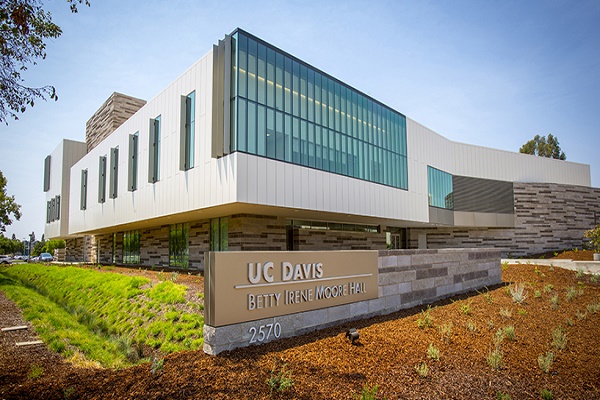University of California, Davis Asst. Professor Named Innovator in Food and Agriculture Research
The Foundation for Food & Agriculture Research, or FFAR, named UC Davis Assistant Professor Alessandro Ossola among its 10 recipients of the 2022 New Innovator in Food & Agriculture Research Award. The award, announced today (April 24), provides early-career scientists with funding to conduct audacious food and agriculture research without the pressure of securing additional funding.
Ossola is an assistant agronomist in the Department of Plant Sciences. His research is leveraging big data to create novel scientific evidence on the climate suitability and vulnerability of dozens of urban tree crop species across the United States.
Alessandro Ossola
By crowd-sourcing data from urban farmers, the project will develop robust climate models for selected tree cultivars and varieties. The researchers will use these models to build a data portal and plant selection tool for climate-ready tree crops to assist urban farmers with planning, establishing and growing climate-resilient urban food systems.
“We have the historic opportunity to design edible urban landscapes that will thrive — not just survive — under climate change,” Ossola said. “We want to empower urban farmers and gardeners to create edible forests that are climate-ready. This award will allow researchers to deliver actionable science to community farmers across the US, particularly those in underserved areas.”
Congress established FFAR by way of the 2014 Farm Bill to increase public agriculture research investments, fill knowledge gaps and complement the Department of Agriculture’s research agenda. FFAR’s model matches federal funding with private funding. Through collaboration and partnerships, FFAR advances actionable science to benefit farmers, consumers and the environment.
We have the historic opportunity to design edible urban landscapes that will thrive — not just survive — under climate change. — Alessandro Ossola
Research by the 10 “New Innovators” reflects FFAR’s commitment to scientific workforce development and helps create new avenues of knowledge that deliver groundbreaking solutions to difficult challenges.
“When scientists can spend less time searching for funding, that means more time for science,” said Saharah Moon Chapotin, FFAR executive director. “FFAR is proud to support these early career scientists as they pursue the creative research that will overcome current and future challenges to our agricultural and food systems.”

